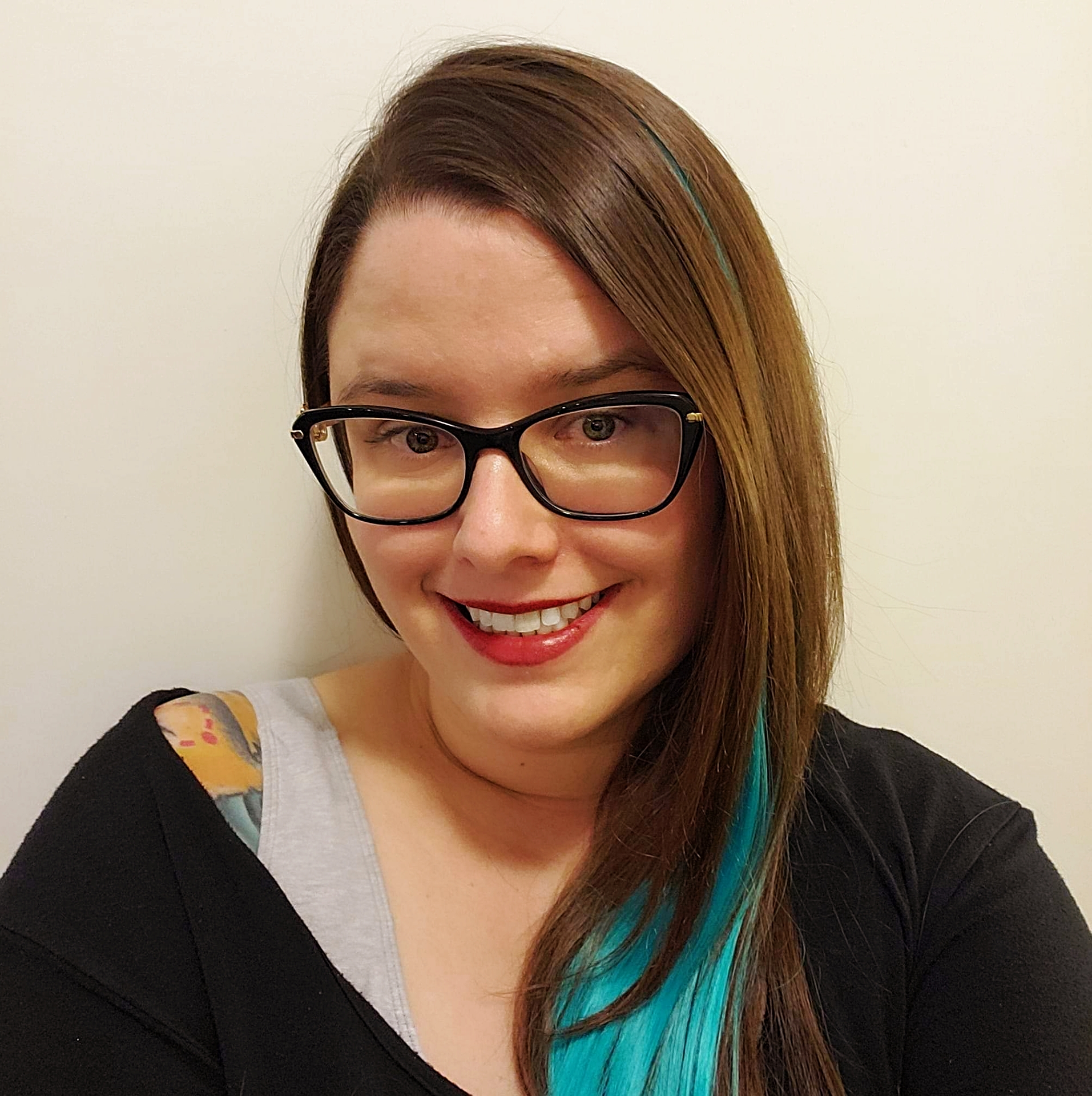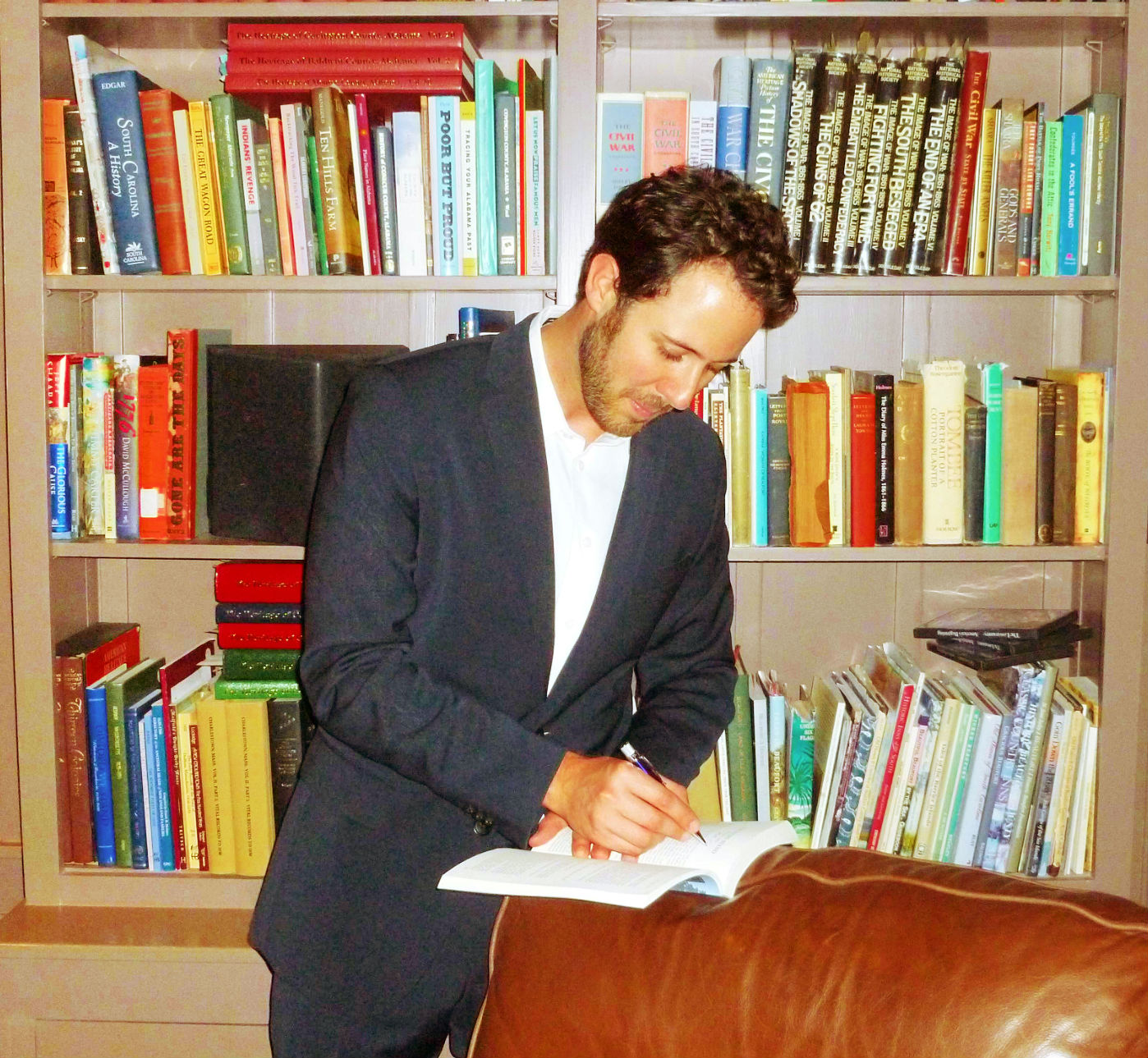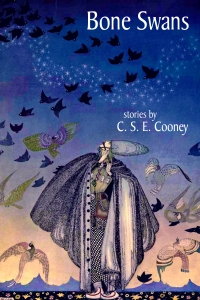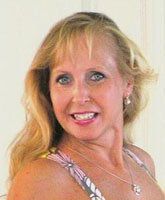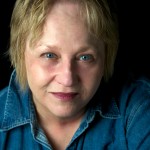 A Conversation with Renée Ashley, Author of Because I Am the Shore I Want to Be the Sea
A Conversation with Renée Ashley, Author of Because I Am the Shore I Want to Be the Sea
BF: When did you discover your love for writing poetry? Can you tell us about the first poem you’ve ever written?
RA: It’s not a pretty tale to tell, alas. I had, evidently, as a kid, a good ear for hammer-heavy rhythm and rhyme and I exercised that on poems for extra credit in grade school, fifth grade mostly, and high school. I didn’t need the extra credit. I was a good student, so what was it about? Probably just to be liked by the teacher. No, to be praised. Yes, probably for praise. But back then it had nothing to do with loving poems. It had nothing to do with literature at all, really, but had everything to do with my backbreaking insecurities. I was a nervous wreck as a kid. A mess. I don’t think I knew how to laugh and I don’t think I began to really love poetry until I was in my late thirties or early forties. I’d already published a book (Salt, Brittingham Prize, University of Wisconsin Press). I began to love it when I found that I had to work really hard to make it good, that whatever smidgen of talent I might have had was going to, sooner or later, let me down. And evidently it was sooner. You know, a classic case of working up to my level of incompetence. I knew nothing! I was winging it! But, when I found that in order to get better I had to read critically—like a writer rather than a reader—and really study and think, then it became love. When I had to really work hard for it. I still love how difficult it is to make a good poem. I love how intricate and subtle craft can be—and I love finding out what I really think, which I do, inevitably, when I take a viable poem through to completion.
The first poem I wrote? No clue. The first one I remember, I don’t remember the title of. I know it began, “The baby is a number one./It grows to number two.” Could you die? Oh well. Perhaps all that bad poetry was necessary to get me to the point of wanting the work to be good. I really have to forgive myself. I’m working on it. It’s slow like so much else.
BF: What inspires your ideas for poems?
RA: Your question is an interesting one because it posits two givens: that I have inspiration and that I have ideas for poems.
I would never call what gets me going on a piece inspiration. I don’t know. It sounds both sort of lofty and precious to me. I don’t think there’s anything lofty about making poems. But what usually gets me started is an image or a phrase with a viable musicality. I would call that a quickening. It’s that music and the image’s attendant associations that become the engine that furthers the poem, drives the poetic bus, so to speak. I need that. No musical momentum? No poem.
Ideas, on the other hand, at least for me, are death to a poem. An idea is invariably the starting place for an essay, some connection I suspect and want to verify and explore. Ideas seem to demand exposition. A poem doesn’t.
BF: You not only write poetry, but also fiction and nonfiction. How does your writing process differ for each outlet? What are the similarities?
RA: I do. I write poems, essays, and I’ve written two novels—and if I decide to write another one of those you can just put me out of my misery when you see me typing a title page. I have absolutely no talent for plot. All my conflicts are internal. The mere suggestion of face-to-face confrontation gives me the vapors. So, that’s a problem, isn’t it! I’m like Virginia Woolf, in that respect: I write situations rather than plots. In every other way, though, I’m no Virginia Woolf, though wouldn’t that be lovely? Except for the stones-in-the-pockets thing. Still, I learned a great deal from writing those books; I learned what I can and can’t do, for starters. I began the first novel because I’d published short stories and an agent told me if I had a novel he’d consider taking me on. Four years later, when I’d finished it, he did not take me on. But another saint of an agent did, and darned if she didn’t get the book published. She still has the second novel and can’t give it away. It’s weird because it’s a much better book than the first, but, eh. The market is not generous these days, and I’m hardly a young, hip, marketable personality. And I’m actually fine with that which sort of surprises me. I do suffer from a serious case of reality. Writing it was, nevertheless, valuable experience.
The essays, as I said, are generated by ideas. I get the equivalent of an earworm, let’s call it a brainworm, and I obsess. Almost everything I see after that seems to somehow connect, to be somehow related to it. The brainworm primes me for associations. Most of my essays are hybrids: essay/reviews, critical/personal, or simply personal essays that involve some sort of research or exploration. Some, I think, are very funny; some not so much. I love writing essays. I’m dying to write some lyric essays right now. Essays give me, I think, what I wish I could find with novels: an extended, deep involvement with some one thread of grounded thought. The idea of getting up in the morning and actually having something to go to work on, something that is already established and needs me to keep attending to it is so comforting. Of course, that idea is an abstraction and wishful thinking. The reality is you’d think I was being beaten while it’s going on. For me it’s hard, hard work and I’m glacial at writing prose. So-o-o-o slow. Probably, it’s more that I’m a slow thinker, but it works out the same. Sometimes hundreds of drafts over a long period: months, and, in some cases, years. And I can only work on one thing at a time, so … I won’t live long enough to write all the things I’d like to write! The essay is such an elastic form, though. It’s really a sort of writer’s one-size-fits-all.
The similarities would be that, when the writing’s going well, whatever it is, I get into what Mihaly Csikszentmihalyi calls flow. I think runners call it the zone. The world goes away, my body goes away, my whines and snipes disappear, I’m not worried about my thinning hair or my expanding derrière, and I’m entirely enveloped by the subject and the making. That’s worth waiting for. Also, of course, precision of focus and language; that’s always an ideal. And, every single time, at some point, at least in novels and essays, I reach a point of true despair and think all the snippets I’ve gathered will never come together as a cohesive, meaningful whole, I was wrong-headed to think it would work, I can’t write a decent sentence, I’m an idiot and the world’s going to find out. I’ve been going through that so long that years back I realized it was part of my process, that the total, nauseating, shame-facing panic means it’s going to come together sometime soon; it won’t be easy, but it’ll get there. But it’s got to be real despair, not pretend; pretend doesn’t work. I have to really believe I’ve blown it before I can drag the bits of fragmented body out of the morass. I have to just keep pushing thought and articulation forward. That doesn’t happen with a poem—but then a poem is a much lesser piece of real estate. There’s not so much room in a poem to go wrong.
Poems, on the other hand, are a sort of anthropology of the psyche. Or maybe archeology. I have to go deep and be able to snag some little scrap of the chaos that’s rampant in there and draw it out, define it, make it stand alone. Then there’s precision to be dealt with, and alignment, and, I hope, seamlessness. Perhaps the process of a poem is first, excavation; second, articulation; and third, re-evaluation, alignment, and refinement. At least that’s today’s explanation.
BF: In addition to being a published writer, you also teach aspiring writers. What have you learned about yourself as a writer after you’ve started teaching?
RA: I’ve learned more about writing from teaching than I have from studying—because in teaching I’ve had to explain why something should be either the way it is or changed. I’ve learned to articulate those little dollops of craft that can add up to a working whole—and I honestly believe that articulation is the key to all of this. Because, in the end, most of us don’t write with a group of peers or with some “authority figure” standing over us, poking us with a “do this/try that” stick. We’re alone in a room, if we’re lucky, or a library carrel, or with others around us on a bus or a train, or standing at someone’s kitchen counter tapping it out on a borrowed laptop. When something we’ve written doesn’t work, we need to be able to locate that little sub-lot of real estate on which the thing begins to falter and follow the weakness through to where the piece seems to begin to work again (assuming it does). Finding the exact locus of the problem. If you’ve had a similar issue come up before in your own or someone else’s work, and you’ve articulated the problem, you’re going to recognize it more quickly. If you can explain the mechanical or cognitive failure you see there, then you can call that solution up more quickly the next time. Calling up of a vague feeling of “something’s wrong” doesn’t help at all. It’s too fuzzy. But a good articulation has clean edges and can be lifted out of the crazy litter of brain stuff with far more ease. That’s a huge gift, to learn to articulate an element of craft, however small. It’s because, and I’ve said this before, so forgive me, but talent will take most of us only so far. When we reach the limit of our talent, what do we do? We either plod along writing work with the same and, in all likelihood, new weaknesses so that the old ones begin to look like tics and the new suspected to be nascent tics, or we get bored with ourselves and just stop writing altogether. I think every piece we write should be, in some way, more challenging than the piece before it. Stasis is no fun. No fun at all. Who wants to be the hamster in that wheel?
But learned about myself? I’ve learned, over time, to be more patient and to trust my intuitions and pay attention to my own process so that I don’t get in my own way. I’m probably only semi-successful at that, but I’m better than I was. And, once I learned that good writing includes discovery, I learned to acknowledge what it is I really think and, sometimes, how to say it. And then, if I’m lucky, how to live with what I’ve said.
BF: How do you juggle both writing and teaching?
RA: Not well. I’m the poster child for sloth except when it comes to teaching, editing, and revising, all of which I love and can, almost always, muster enthusiasm for. But apparently I love watching tv more than I like tackling my own work. I love staring into space. And reading. I can sit with the dogs in my lap for hours and do nothing. And then watch more crappy tv. Netflix is my nemesis. So, no. I don’t juggle it well at all.
BF: What is your favorite part of the writing process? What about least favorite?
RA: Rewriting and editing! I love making something tight, cutting out the blah-blah, and seeing it work more efficiently, become tensile and more resonant.
My least favorite in poetry? Probably the time between poems! And I hate ordering a manuscript. I’m not wild about sending work out to magazines either. The business end is rough.
My least favorite part in the essay is finding my in, finding my angle of approach, the just-right slant or narrowing of the topic to make it true, to make it pitch just so, getting the words just right so those words generate the next right words and so on. Watching meaning accrete and letting the language surprise me, I love that. It’s a big and little thing at the same time. It’s about alignment and nuance and tone—does this articulation make everything that follows fall into place? That’s the in I have to wait for. Most of the time I generate a lot of real losers before I discover what works. Of course everything that follows it, then, is still post-it notes on my walls and in my head, scraps of paper scattered in my car everywhere else, but, nevertheless, that’s what it is. That’s how it works. It’s not a process for someone in a hurry.
My least favorite in writing a novel is the writing-the-novel part.
BF: What other writers inspire you?
RA: There are so many writers writing admirable work in so many forms and styles! They all have something to offer. To choose just a few would be criminal.
I can say that it was the poet John Logan who led me to writing poetry as an adult. I heard him read almost by accident and a giant light went on. The first book of poetry, though, that absolutely bowled me over, that made me think poetry was something I wanted to enter (the way you might enter a dense, gorgeous, light-dappled redwood forest) was Pattiann Rogers’ first book, The Expectations of Light. She was the poet-in-residence at the Frost Place soon after I read it. I didn’t know poetry could be like that! It was gorgeous! I could understand it! I found new things to love when I reread it! It sang and was smart. It changed what I saw as possibility. But I read voraciously and there are so many writers doing work that speaks to me. Really, if I name just a handful I’ll leave way too many out who were really important and then I’ll die of shame.
I read different writers for different things. I will tell you, though, that I have my MFA poetry students read Bob Hicok’s Words for Empty and Words for Full, Catherine Doty’s Momentum, and Kathleen Graber’s The Eternal City. All wonderful books. I want my students to understand that narrative isn’t just storytelling, that it can be handled in very different ways and still be pressed beyond the anecdotal. The poem has to get bigger than the poet. Each of these poets manages that in a very different way within the narrative arena. It’s an eye-opener for a lot of students.
I can tell you, too, I’ve just finished David Grand’s new novel, Mount Terminus, and it’s incredible. It’s like a super-long, super-tight poem. His prose is elegant, never decorative, and has real profluence. It’s impossible to put down. The story is magical (not as in Harry Potter, but as in wonderfully interesting and intricate and singular). And I’ve learned to love Louise Gluck’s poems. I didn’t like their spareness when I was a new poet. I liked Amy Clampitt who wrote wonderful lush poems, poems like cabbage roses. Gluck writes poems like broken bones. She’s certainly not warm and fuzzy; she’s got a bitter edge that I am constantly cut by as well as fascinated by. And I have my creative nonfiction class annotate David Foster Wallace’s Harper’s article, “A Ticket to the Fair.” That piece slays me. His essays give so much away about him; they’re brilliant and funny and sad. “A Supposedly Fun Thing I’ll Never Do Again” can break your heart. Oh, also I. J. Kay’s novel, Mountains of the Moon. Those things I’ve read very recently. And Mary Rose O’Reilley’s The Barn at the End of the World and The Love of Impermanent Things! Those are books of personal essays that everyone should read. She’s such good company! A seamless and brilliant writer. And so generous and smart.
I used to tell folks that I thought Brigit Pegeen Kelly’s poem, “Song,” would be the poem from my approximate generation that would last. Now I would add Alice Oswald’s—a generation younger, I’m assuming—book-length poem, Dart. Both amazing, riveting, really remarkable poems. I’ve probably listened to the CD of Oswald reciting Dart a hundred times and, still, every single time it makes my jaw drop and my head wobble. I have the audio on the hard drive in my car and on my iPhone, a copy of the book by my bed, and I travel with another copy of the book just in case I need a dose of flabbergast. Her images… Her images are perfection. That’s crazy! But it’s true.
BF: Are there new voices (poetry or fiction) that you believe our readers should give a chance?
RA: My advice is read everything. Read writers who are new to you. If you hate a book after you give it a fair chance, put it down and start something else. The book may not be for you or you just might not be ready to read it appreciatively. There are so many books out there! I won’t tell you what I spend on books every year because it’s insane, but let it suffice to say when I read a poem in a journal or magazine or online that really grabs me I buy that poet’s book. Oftentimes, that first poem I fell in love with turns out to be the best poem of the book, but that’s ok. I enjoy reading them, deciding what to lead my students to, deciding who to follow up on with more books or even criticism. I know it’s become a cliché now, but, really, if you’re not an insatiable reader, the likelihood of your being a fabulous writer is slim. Don’t ask me for statistics. But we learn from out predecessors and those writing around us. I try to read out of my comfort zone, too. I want to know what’s possible and, perhaps, absorb or consciously learn from it. I don’t want to keep writing the same poems, for instance, over and over again. I want to learn new techniques, new dynamics; I want to hear how others think in and about the world. Read it all. Really.
BF: Describe your typical day (writing, planning for classes, etc).
RA: I don’t really have one! Some days I’m out in the car doing a million things, mixing freelance jobs, meetings, appointments, or meeting friends. I often mix those with domestic stops (cleaners, market, jeweler for a watch battery, etc.). Some days I’m home all day. Some weeks I never leave the house! Especially in winter. My body clock, if left to its own devices, is sort of wonky. When no outside obligation has made me get up early, my usual bedtime is about 4 a.m. If I’ve had to get up for a morning meeting or appointment, or the dogs have lost their minds because the Great Cosmic Squirrel is out in the yard or the trespassing man has come to read the meter, then that gets bolloxed up. I get up at the last possible moment to do what I need to do. But that’s how I’m at my best: to bed at 4 am, sleep until 10 or 11 am. That’s the baseline; everything other than that is problematic though often necessary. I’m a rotten role model for student writers. (Shhhh! Don’t tell!) I don’t write until I need to write. I can go months without writing a thing (though I never stop thinking about writing). I don’t call that writer’s block. I call that watching tv. I waste a tremendous amount of time. But when I write I write intensely. So, mostly, my hours are flexible. And I like to go away to write. To isolate myself. In a week I’m going down the shore for three nights with two other writers. We’ll lock ourselves up and get some writing done. I’m going to work on a long poem I’ve been working on since December. It’s mid-April now. Please send me good wishes.
BF: Can you tell us anything about your latest project?
RA: I had a new book come out last October, a book of prose poems called, Because I Am the Shore I Want to Be the Sea, and I’ve been working, for the last two years, on another book of prose poems. I’m about half-way on that; it’ll be made up mostly of three long sequences: one I just call the Crazy Dog Lady poems—they may or may not make it in—and the others have titles, from Her Book of Difficulties and Ruined Traveler. And I have a book of essays that I keep trying to put together but failing to complete. I need to finish the last essay which was going to be an intro and then do a read through for statements I may have repeated, but some life events turned that around and now it’s the last essay in the strange, hybrid collection. Prose takes such focus; I can’t just dash in and out of that, so I’m waiting for some away-time and hope to concentrate on that then. I can tell something new is brewing, but I don’t know what it is yet. I’m getting that in-between feeling, which means I’ll have to finish the books I’m working on so that I can start the new project. That’s it. Writing and teaching and living a surprisingly quiet life. I have this hanging over my computer: One of the frustrations of writing is that growth is slow, our work made up entirely of trajectory. That’s my project: trajectory.
For more information about Renée or any of her publications, visit www.reneeashley.com.
